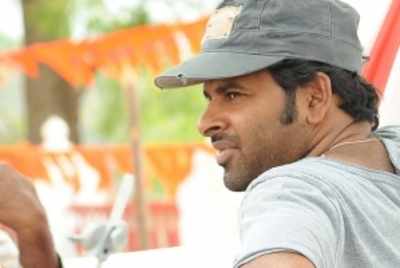- News
- entertainment
- kannada
- movies
- Filmmaking is not history. Santhosh Rai
Trending
This story is from April 27, 2016
Filmmaking is not history. Santhosh Rai

He was part of the first batch of cinematography students at the Government Film & TV Institute, when it shifted to the new Hesaraghatta campus. He was also recently involved in revamping the syllabus for the students. Having been on both sides, cinematographer-filmmaker Santhosh Rai Pathaje shares his reasons about why the film institute needs a revamp and more.Read on... 'It's very sad to hear about the ongoing strike. Being part of the first batch at the new campus, I recall how it was such a wonderful experience. We were one of the only colleges in the world to have the Arriflex 535 camera then and even had other state-of-the-art equipment in our studio. Back then, the World Bank had funded the campus and it was a delight for any aspiring film student to get into the institute. What has happened is that the college has not received the necessary funds for the upgrade ever. 'I can say this because I have visited the college a couple of times as a guest lecturer and was even part of the committee that revamped the syllabus, given the demands for today's style of filmmaking. But filmmaking is not history. Students need practical training and enough exposure. This can only happen if they get good exposure in terms of equipment. 'A little-known fact is that the Government Film & TV Institute is one of the oldest film institutes in Asia and has produced many luminaries. While institutes like those in Pune and Kolkata have been more publicized, not many know of this institute here.'
'The government needs to support and publicize it more. It is not too often that a government sets up an institute for filmmaking aspirants. Now, when they have one, they need to let people, especially parents, know the career prospects if someone takes up this course. 'Regarding this particular protest, I think the government should step in and help with the necessary equipment. When film and TV industries have gone digital, one needs to keep the technology updated every few years. The government needs to provide funds for this to happen. Currently, the institute charges very nominal fees for students. Realistically, it can increase the fees if they have the latest technology and equipment, since it would attract students. Since we have such a good institute right in our backyard, it is only right that it be revived in the right fashion to nurture talent for our film industries.'
'The government needs to support and publicize it more. It is not too often that a government sets up an institute for filmmaking aspirants. Now, when they have one, they need to let people, especially parents, know the career prospects if someone takes up this course. 'Regarding this particular protest, I think the government should step in and help with the necessary equipment. When film and TV industries have gone digital, one needs to keep the technology updated every few years. The government needs to provide funds for this to happen. Currently, the institute charges very nominal fees for students. Realistically, it can increase the fees if they have the latest technology and equipment, since it would attract students. Since we have such a good institute right in our backyard, it is only right that it be revived in the right fashion to nurture talent for our film industries.'
End of Article
FOLLOW US ON SOCIAL MEDIA









